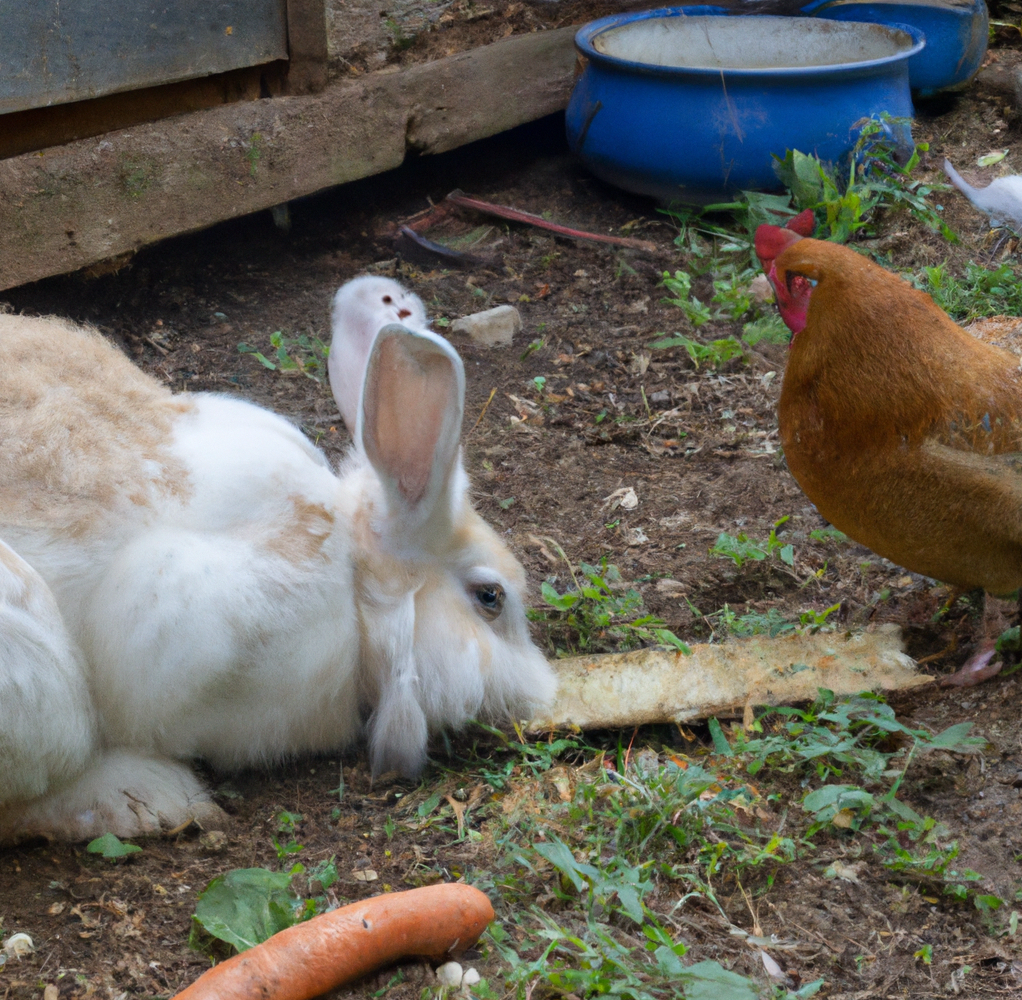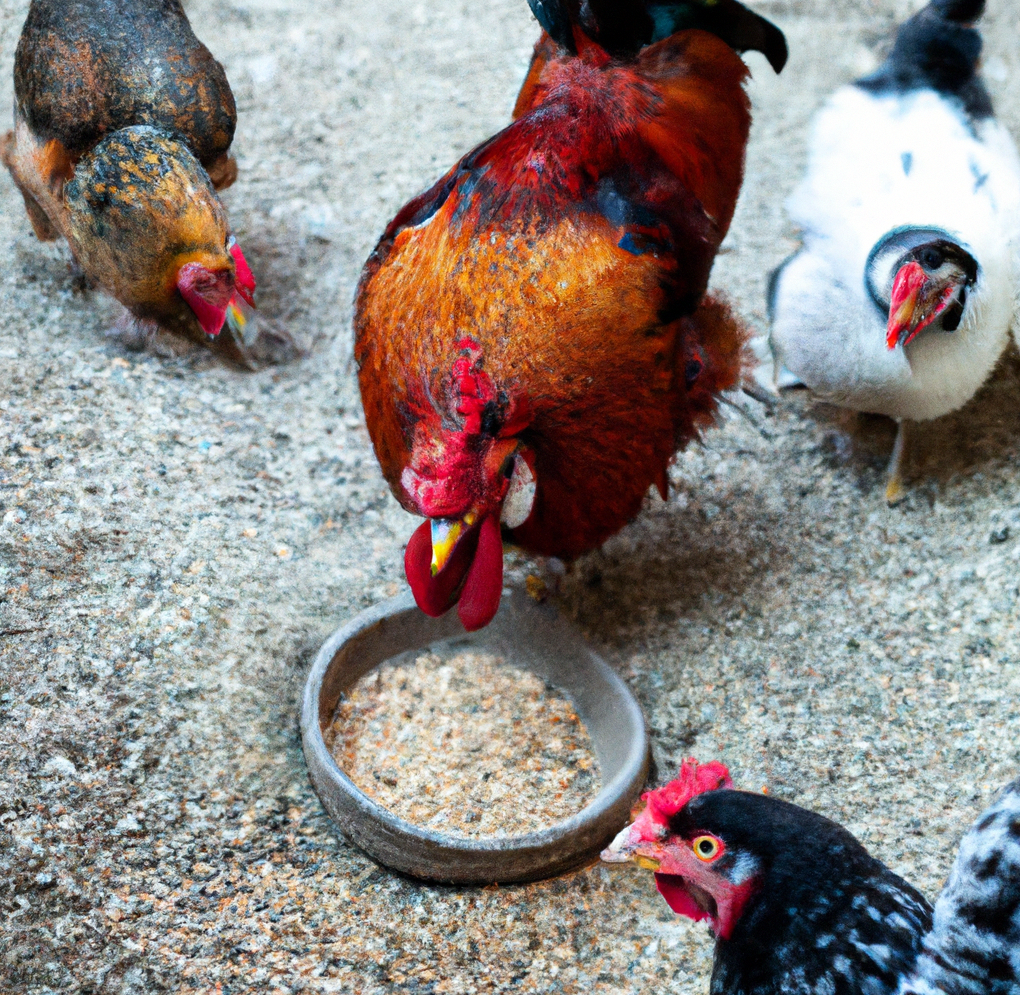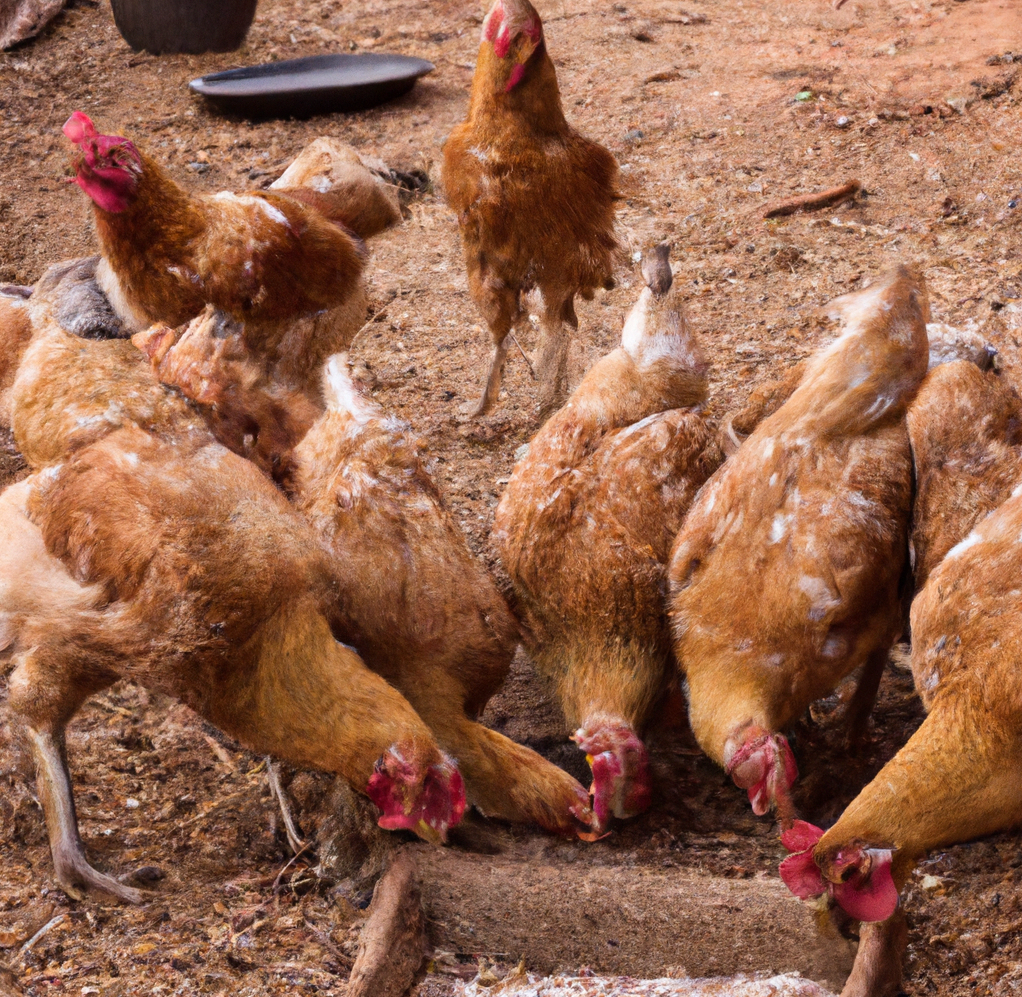Rabbits are one of the most beloved pets, and their diet is an important part of keeping them healthy and happy. Many people wonder if it is safe to give their rabbit chicken pellets as part of their diet. Chicken pellets are a popular feed for chickens, and some people think it could be a safe option for rabbits. In this article, we’ll look at the pros and cons of feeding rabbits chicken pellets to help you make an informed decision about including them in your rabbit’s diet.
What are the Benefits of Feeding a Rabbit Chicken Pellets?
Chicken pellets are an excellent food choice for rabbits, offering a variety of benefits. To begin, chicken pellets provide a balanced diet for rabbits, which is essential for their health. Chicken pellets contain a combination of essential vitamins and minerals, such as calcium and phosphorus, which are necessary for the development of bones and teeth. Additionally, pellets are a concentrated source of protein, which helps to maintain the health of a rabbit’s fur, skin, and nails.
Furthermore, chicken pellets contain beneficial dietary fiber, which helps to keep a rabbit’s digestive system healthy and regulate their stool production. This ensures that rabbits are able to efficiently absorb the nutrition they need from their food. Additionally, the dietary fiber helps to prevent hairballs, which can form if rabbits consume too much fur while grooming.
Finally, chicken pellets are a complete food source for rabbits, meaning that they do not need to be supplemented with additional foods. This ensures that rabbits do not overindulge in any one food, which can lead to health issues like obesity.
In conclusion, chicken pellets are an excellent food choice for rabbits, offering a balanced diet and a variety of health benefits.
Is it Safe to Feed Chicken Pellets to Rabbits?
No, it is not safe to feed chicken pellets to rabbits. Chicken pellets are formulated to meet the nutritional needs of chickens, which differ greatly from those of rabbits. Rabbits require a diet that is high in fiber and low in protein and calcium, while chickens need a diet that is high in protein and calcium.
Rabbits are herbivores, meaning they need to eat almost exclusively plant material in order to meet their nutritional needs. While chicken pellets contain some plant material, they are not designed to provide rabbits with the correct ratio of nutrients. Additionally, chicken pellets typically contain added salt and other seasonings, which are not suitable for rabbits.
Inadequate nutrition can lead to serious health issues for rabbits, such as gastrointestinal upset, malnourishment, vitamin deficiencies, and poor growth. For these reasons, it is not recommended to feed chicken pellets to rabbits. Instead, rabbits should be fed a specialized diet of hay, fresh vegetables, and a limited amount of specially formulated rabbit pellets.
How to Properly Introduce Chicken Pellets to a Rabbit’s Diet
Introducing chicken pellets to a rabbit’s diet is an important step in providing your pet with a balanced and nutritious diet. Rabbit pellets are a complete feed and should be the main source of nutrition for your pet. In addition, providing a variety of foods, such as hay, fresh vegetables, and treats, can help ensure that your rabbit’s diet provides a wide range of nutrients.
When introducing chicken pellets to your rabbit’s diet, it is important to do so gradually. Begin by offering a small amount of pellets and gradually increase the amount over the course of a week or two. This will give your rabbit time to adjust to the new food, and it will also help prevent digestive upset.
It is also important to observe your rabbit’s eating habits to ensure that they are consuming the proper amount of pellets. Rabbits should eat approximately one-half cup of pellets per day, depending on their size, age, and activity level. If your rabbit is not consuming the recommended amount of pellets, you may need to reduce the amount of hay and other treats in their diet.
Finally, it is important to ensure that your rabbit’s pellets are fresh and of good quality. Pellets should be kept stored in a cool, dry place, and should be replaced every two months. Additionally, it is important to check the expiration date on the package and to discard any pellets that have expired.
Following these steps will help to ensure that your rabbit’s diet is properly balanced and provides the nutrition they need to stay healthy and active. If you have any questions or concerns about introducing chicken pellets to your rabbit’s diet, it is important to consult your veterinarian.
What Nutrients do Chicken Pellets Provide Rabbits?

Chicken pellets provide a balanced diet for rabbits, supplying them with essential nutrients for optimum health and wellbeing. Chicken pellets contain a variety of nutrients, including carbohydrates, proteins, fats, vitamins, and minerals.
Carbohydrates provide energy for rabbits, and chicken pellets contain a variety of carbohydrates such as fiber, starches, and sugars. These carbohydrates help to provide the energy that rabbits need to stay active and healthy.
Proteins are essential for the growth and repair of tissue, and chicken pellets are a good source of protein. These proteins are composed of amino acids, which are the building blocks of protein.
Fats are an important source of energy for rabbits, and chicken pellets contain a variety of fats. These fats provide essential fatty acids, which are important for the health of the skin and coat.
Vitamins are essential for a healthy rabbit diet, and chicken pellets contain a variety of vitamins, including Vitamin A, B, C, D, and E. These vitamins all play an important role in keeping rabbits healthy, and help to protect them from a variety of diseases and illnesses.
Minerals are also important for a healthy rabbit diet, and chicken pellets contain a variety of minerals, including calcium, phosphorus, magnesium, and iron. These minerals are essential for healthy bones and teeth, as well as for proper muscle and nerve function.
In conclusion, chicken pellets provide a balanced diet for rabbits, supplying them with essential nutrients for optimum health and wellbeing.
What are the Potential Risks of Feeding a Rabbit Chicken Pellets?
Feeding a rabbit chicken pellets can have potential risks that should be considered. While chicken pellets are a popular choice for rabbits, they do contain higher levels of protein and fats than other pellets, which can be too much for a rabbit’s delicate digestive system. Overfeeding these pellets can lead to obesity, which puts the rabbit at risk for further health complications. Additionally, chicken pellets are not a complete diet and should be supplemented with hay, fresh vegetables, and occasional treats. Without a balanced diet, the rabbit can develop an imbalance in their essential nutrients, leading to health issues such as dental problems, diarrhea, and ear infections. Lastly, the high fat content in chicken pellets can cause digestive issues, such as stasis or enteritis. If a rabbit experiences any of these issues, they should be taken to a veterinarian for treatment.
In conclusion, feeding a rabbit chicken pellets can have potential risks. It is best to discuss a feeding plan with a veterinarian to ensure the rabbit is receiving the best nutrition and to prevent any health issues.
How to Choose the Best Quality Chicken Pellets for Your Rabbit
Rabbits can be picky eaters, so it is important to choose the best quality chicken pellets for your furry friend. Here are some tips to help you make the right choice.
First, look for a brand that is specifically formulated for rabbits. Many pet food companies offer chicken pellets for rabbits, so it is important to check the label for the appropriate ingredients. Look for high-quality sources of protein, such as chicken meal, as well as vitamins and minerals to ensure your rabbit gets the nutrition it needs.
Second, consider the size of the pellets. You want to choose pellets that are small enough for your rabbit to eat easily. If the pellets are too large, your rabbit may struggle to chew them and may not get the full nutrition from the food.
Third, check the expiration date. You want to make sure you are feeding your rabbit fresh, high-quality pellets. Expiration dates will help you ensure you are giving your rabbit the best food.
Finally, if you are unsure of which brand to choose, ask your veterinarian for advice. Your veterinarian can help you select a brand that is appropriate for your rabbit’s size, age, and health.
By following these tips, you can ensure you are choosing the best quality chicken pellets for your rabbit.
Does a Rabbit’s Age Affect the Amount of Chicken Pellets to Feed?

The age of a rabbit is an important factor in determining the amount of chicken pellets that should be fed to the animal. Generally, young rabbits require more food than adults and should be fed a higher quantity of chicken pellets to ensure proper nutrition and growth.
For a young rabbit, it is recommended to feed them 1/4 cup of chicken pellets per 2 pounds of body weight, per day. This should be spread across two feedings, one in the morning and one in the evening. As the rabbit ages, the amount of chicken pellets should be reduced. An adult rabbit should be fed only 1/8 cup of chicken pellets per 2 pounds of body weight, per day. This should also be spread across two feedings.
It is also important to note that a rabbit’s diet should consist of more than just chicken pellets. A rabbit should also have access to hay, fresh vegetables, and occasional treats in order to ensure they are getting the proper nutrition.
In conclusion, the age of a rabbit is an important factor in determining the amount of chicken pellets to feed them. Young rabbits require more food than adults and should be fed a higher quantity of chicken pellets. An adult rabbit should be fed only 1/8 cup of chicken pellets per 2 pounds of body weight, per day. It is also important to note that a rabbit’s diet should consist of more than just chicken pellets.
How to Balance a Rabbit’s Diet with Chicken Pellets and Other Foods
Rabbits need a balanced diet to stay healthy and thrive. A diet consisting of hay, fresh vegetables, and a small amount of pellets can provide a balanced diet for your pet rabbit. Chicken pellets can be part of their diet, however, it should not be the only source of nutrition.
Hay is essential for a rabbit’s diet as it provides them with the necessary fiber. It should make up the majority of their diet, as it helps with digestion and can prevent dental issues. Look for hay with a high fiber content, such as timothy hay or oat hay.
Fresh vegetables should also make up a large part of your rabbit’s diet. Give them a variety of vegetables, such as dark leafy greens, carrots, and broccoli. It’s important to introduce new vegetables slowly so that your rabbit can get used to them.
Chicken pellets can also be part of a balanced diet for your rabbit. However, pellets should only make up 10 to 15 percent of their total diet. Look for pellets that are high in fiber, low in fat, and have added vitamins and minerals.
In addition to hay, vegetables, and pellets, you can also give your rabbit other types of food. Fruits, nuts, and seeds are all good options. However, these should only be given in small amounts as treats.
By providing your rabbit with a balanced diet of hay, vegetables, and a small amount of pellets, you can ensure that they are getting all the nutrients they need to stay healthy. Introduce new foods slowly and only give treats in moderation. This will help to ensure that your rabbit stays happy and healthy for years to come.
Conclusion
In conclusion, although chicken pellets are not the ideal food choice for rabbits, they can be eaten in small amounts as an occasional treat. However, as with all treats, it is important to monitor your rabbit’s health and only feed small amounts as a supplement to their regular diet.

